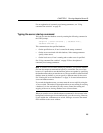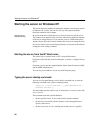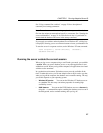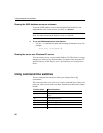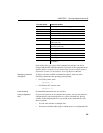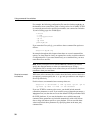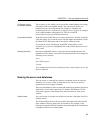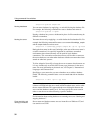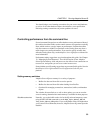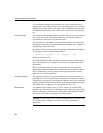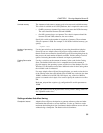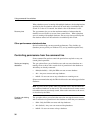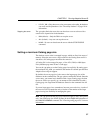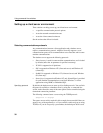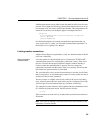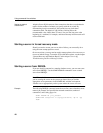
CHAPTER 2 Running Adaptive Server IQ
33
You should adopt a set of naming conventions for your servers and databases,
as well as for all other database objects, that includes a case specification.
Enforcing naming conventions can prevent problems for users.
Controlling performance from the command line
Several command-line options can affect database server performance. Most of
the switches described in this section control resources for operations on the IQ
Store, which can have a major impact on performance. Switches that affect
only the resources available for operations on the Catalog Store may have a
minor impact on overall performance. If you need to specify switches that
affect the Catalog Store only, see the Adaptive Server IQ Reference Manual for
more information.
Performance tuning suggestions are given throughout this guide. See Chapter
12, “Managing System Resources” for a full discussion of how Adaptive
Server IQ uses memory, disk, and processors, the effect of user connections on
resource use, and options you can set to control resource use.
Some platform-specific tuning suggestions are presented in this guide. See also
the Adaptive Server IQ Installation and Configuration Guide for your
platform.
Setting memory switches
Adaptive Server IQ uses memory for a variety of purposes:
• Buffers for data read from disk to resolve queries
• Buffers for data read from disk when loading from flat files
• Overhead for managing connections, transactions, buffers, and database
objects
The switches discussed below, as well as other options you can set once the
server is running, determine how much memory is available for these purposes.
IQ buffer cache sizes
Normally, you set the buffer cache size for the IQ main and temporary stores
using the
SET OPTION command to set the Main_Cache_Memory_MB and
Temp_Cache_Memory_MB options. If you set IQ buffer cache sizes higher than
your system will accommodate, however, Adaptive Server IQ cannot open the
database.



